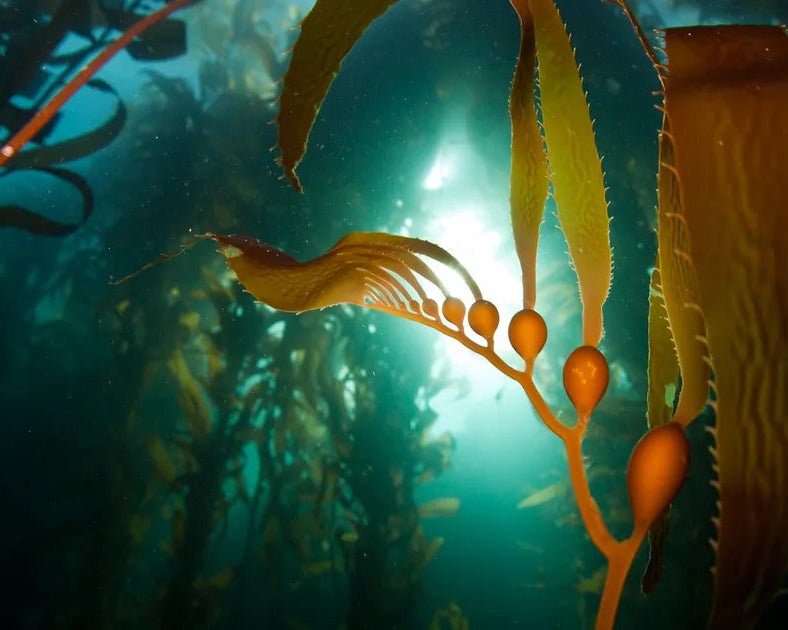Certified by Globally Recognized Standards
Clean fabrics from fiber to underwear
Learn more about SeaCell™ Lyocell
-
SeaCell™ Lyocell
SeaCell™ is made from two remarkable ingredients: wild Icelandic seaweed and eucalyptus pulp from FSC-certified forests.
The seaweed is carefully harvested from Iceland’s pristine fjords using renewable methods that protect marine life and allow the ocean to naturally replenish. The eucalyptus comes from responsibly managed forests and is transformed into fiber through a closed-loop process that saves water and energy.
Blended together, these natural materials create a fabric that is soft, breathable, and kind to your skin. Rich in antioxidants, vitamins, and minerals, SeaCell™ helps nourish your skin as you wear it, combining comfort with care straight from nature.
-
Benefits of SeaCell™ Lyocell
- Vitamin A
for skin regeneration and hydration. - Vitamin C
to protect skin from free radicals and enhance collagen production. - Vitamin E
to protect from UV damage and oxidative stress. - Calcium, Magnesium, Potassium, Iron, and Iodine
contributes to skin health, soothing irritation, and promoting hydration. - Antioxidants
Polyphenols and flavonoids help protect the skin from environmental damage. - Heavy Metals Ion Reduction
SeaCell™ fabric has a unique ability to interact with the environment around it. Studies suggest that it may help reduce the presence of heavy metal ions such as lead, mercury, or cadmium when they come into contact with the fabric. This is linked to seaweed’s natural property of binding to heavy metals in marine ecosystems. By retaining some of these qualities in textile form, SeaCell™ may offer gentle, detoxifying benefits while remaining soft, breathable, and kind to your skin. - Antioxidants, amino acids and free radical protection
SeaCell fabric is infused with powerful antioxidants like polyphenols, helping to relieve oxidative stress from pollution and UV exposure. By neutralizing free radicals, it supports your skin’s defense against damage.
- Vitamin A
-
How long does SeaCell™ nutrients last?
SeaCell™ retains 88% of its skin-loving vitamins, minerals, and amino acids even after 50 washes. While its potency gently fades over time, it continues to nourish your skin with every wear. And even when the nutrients eventually wash out, your garment remains perfectly intact.
-
How is it made?
SeaCell™ Lyocell fabric is produced through a closed-loop process that significantly reduces environmental impact. This highly regulated production system uses only non-toxic solvents (NMMO) to create the material, ensuring safety for both the environment and workers. Additionally, 99% of water and solvents are recovered and reused, minimizing waste and promoting sustainability at every step of the process.
The seaweed used in SeaCell™ is sustainably harvested every four years from the pristine fjords of Iceland, ensuring the health and balance of the marine ecosystem. Once harvested, the seaweed is ground into a fine powder and blended with sustainably sourced wood pulp from regeneratively managed forests, such as beechwood. This wood pulp is certified for sustainability through FCE (Forest Certification Environmental) certification, forming the foundation of the fabric and combining nature’s vitality with environmentally responsible production. -
100% Biodegradable
SeaCell™ fabric is completely biodegradable, within 41 days, composting naturally and returning back to the Earth to rejoin the circle of life.
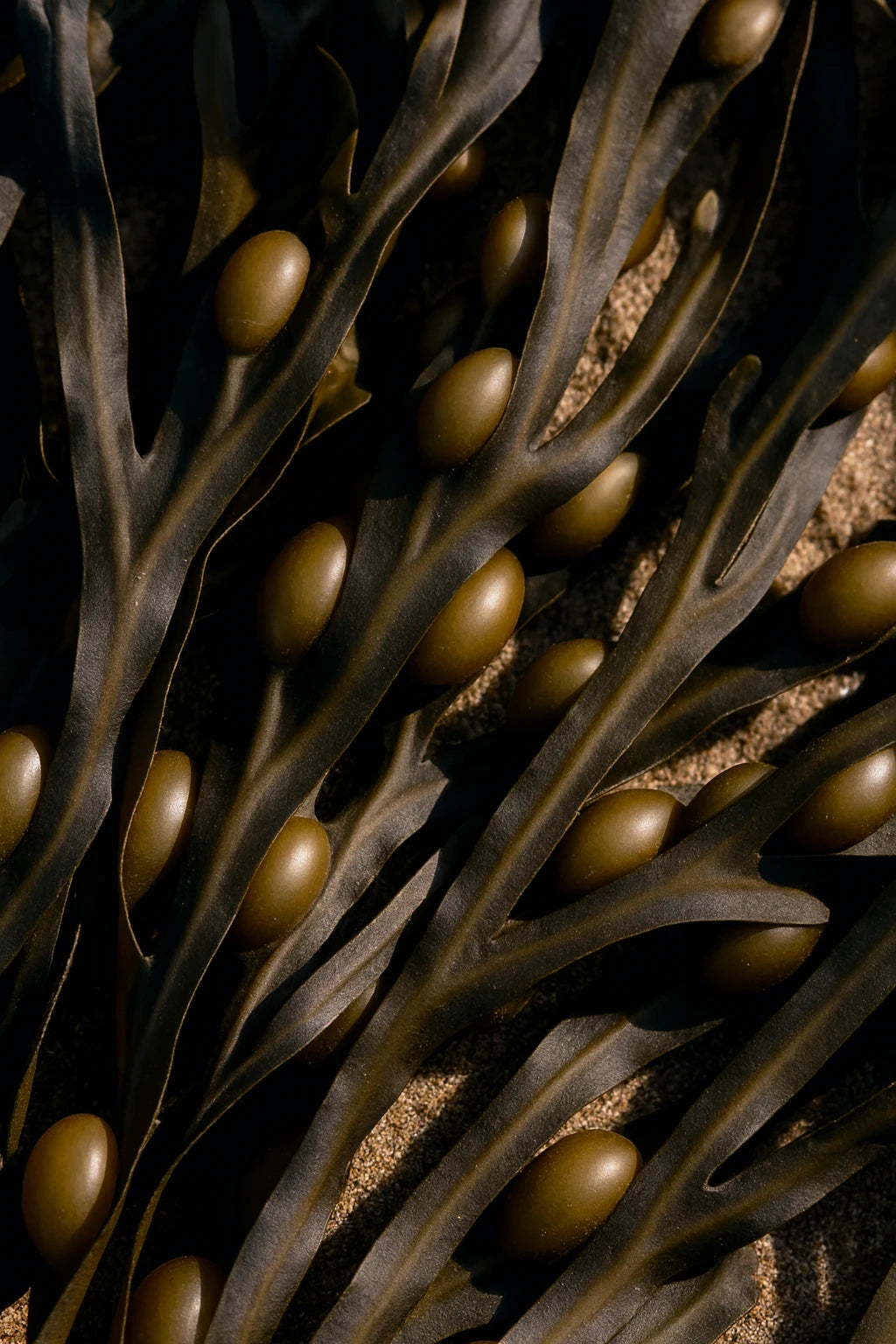




Learn more about Organic Cotton
-
Organic Cotton
Our organic cotton is OEKO-TEX® 100 certified, pure, breathable, and free from toxins, grown in harmony with the Earth. This high-vibrational fabric not only feels amazing but is also gentle on your body, but unlike conventional cotton, it’s never exposed to harmful carcinogenic pesticides, insecticides, or fertilizers, ensuring a healthier, more sustainable choice for you and the planet.
We buy our organic cotton from small farmers in India and Turkey.
-
Free from Formaldehyde and Silicone Softeners
Organic cotton is untreated or is finished with natural alternatives, avoiding harmful substances like formaldehyde, which is commonly used in conventional cotton to make it wrinkle-free or softer. These chemicals can irritate the skin and pose potential health risks with long-term exposure.
-
Grown without harmful pesticides or insecticides
No Synthetic Pesticides or Fertilizers: Organic cotton is cultivated using natural compost, crop rotation, and companion planting to ensure soil fertility and pest control, avoiding harmful chemicals.
-
Grown with Non-GMO Seeds
Unlike conventional cotton, organic cotton is grown from naturally cultivated seeds without the use of genetically modified organisms (GMO).
-
Hand-Picked or Mechanically Harvested
Organic cotton is often hand-picked to prevent damage to the fibers, ensuring a softer, more durable fabric. Mechanical harvesting, when used, avoids the use of harmful chemical defoliants that damage the crop.
-
Low Water Usage
Organic cotton farms typically rely on rain-fed irrigation, significantly reducing the demand for groundwater resources. This natural approach to watering helps conserve water and minimizes the environmental impact compared to conventional cotton farming, which often relies heavily on irrigation from dwindling water supplies. By using less water and promoting healthier soil, organic cotton is a more sustainable and water-efficient crop that supports the long-term health of both the planet and its ecosystems.
-
100% Biodegradable
Organic Cotton is completely biodegradable, composting naturally and returning back to the Earth to rejoin the circle of life.
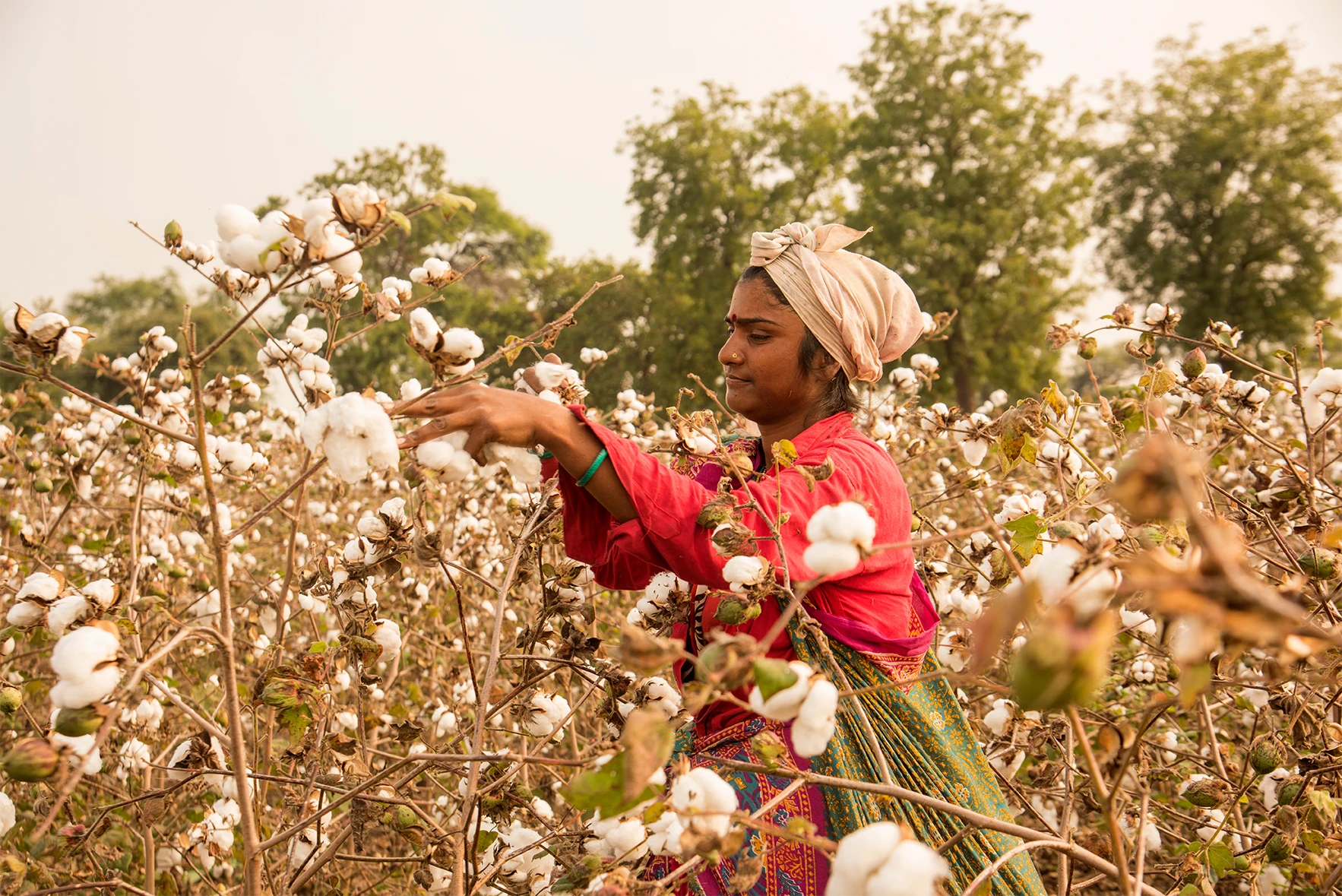






Learn more about ROICA™ V550
-
ROICA™ V550
ROICA™ V550 is a next-generation synthetic fabric produced without PFAS, persistent bioaccumulative toxins (PBTs), or harmful additives. It’s one of the first stretch fabrics to earn the Cradle to Cradle Certified™ Material Health Gold Level certification. We use ROICA™ V550 as a safer, cleaner alternative to conventional spandex and elastane. This innovative elastane was developed in Japan and represents a breakthrough in sustainable stretch materials.
-
PFA & Heavy Metal Free
As part of this certification, heavy metals and harmful chemicals are excluded from fabric treatment, offering a cleaner, more responsible alternative to conventional elastane.
-
Safe on the Skin
All ingredients are evaluated against 24+ human and environmental toxicity endpoints (including carcinogenicity, endocrine disruption, bioaccumulation, etc.).
No substances flagged as "high hazard" (e.g., carcinogens, mutagens, reproductive toxins) are permitted at the Gold Level.
-
Cradle to Cradle Certified™ Material Health Gold Level Certificate
The Cradle to Cradle Certified™ Material Health Gold Level Certificate is part of the globally respected Cradle to Cradle Certified® Product Standard, which evaluates materials for human and environmental health. Specifically, the Material Health category looks at what goes into a product, and how safe it is for people and the planet—throughout its entire lifecycle.
The material is considered safe for human use, including direct next-to-skin contact such as clothing or underwear. To achieve this level of safety, every chemical ingredient used in its production is fully identified and disclosed down to 100 parts per million (ppm). Each substance is thoroughly assessed to ensure it meets strict health and environmental safety standards.
-
Degradeable Fabric
ROICA™ V550 is designed to degrade in microbiologically active soil without releasing any harmful substances. Through a unique polymer structure, it decomposes into CO₂ and water. In testing under ISO 14855-1, ROICA™ V550 degraded by approximately 55% within 2 years, a milestone in textile innovation, as conventional spandex, nylon, and elastane showed no breakdown at all.
Based on its half-life, ROICA™ V550 is projected to fully degrade within ten years while traditional stretch fibers can take over 200 years, leaving a trace across generations.
While ROICA™ V550 shows impressive signs of biodegradability, it does not meet the OK Compost standard, which requires materials to fully degrade within 90 days under industrial composting conditions. Still, it's a revolutionary step toward cleaner stretch fabrics.
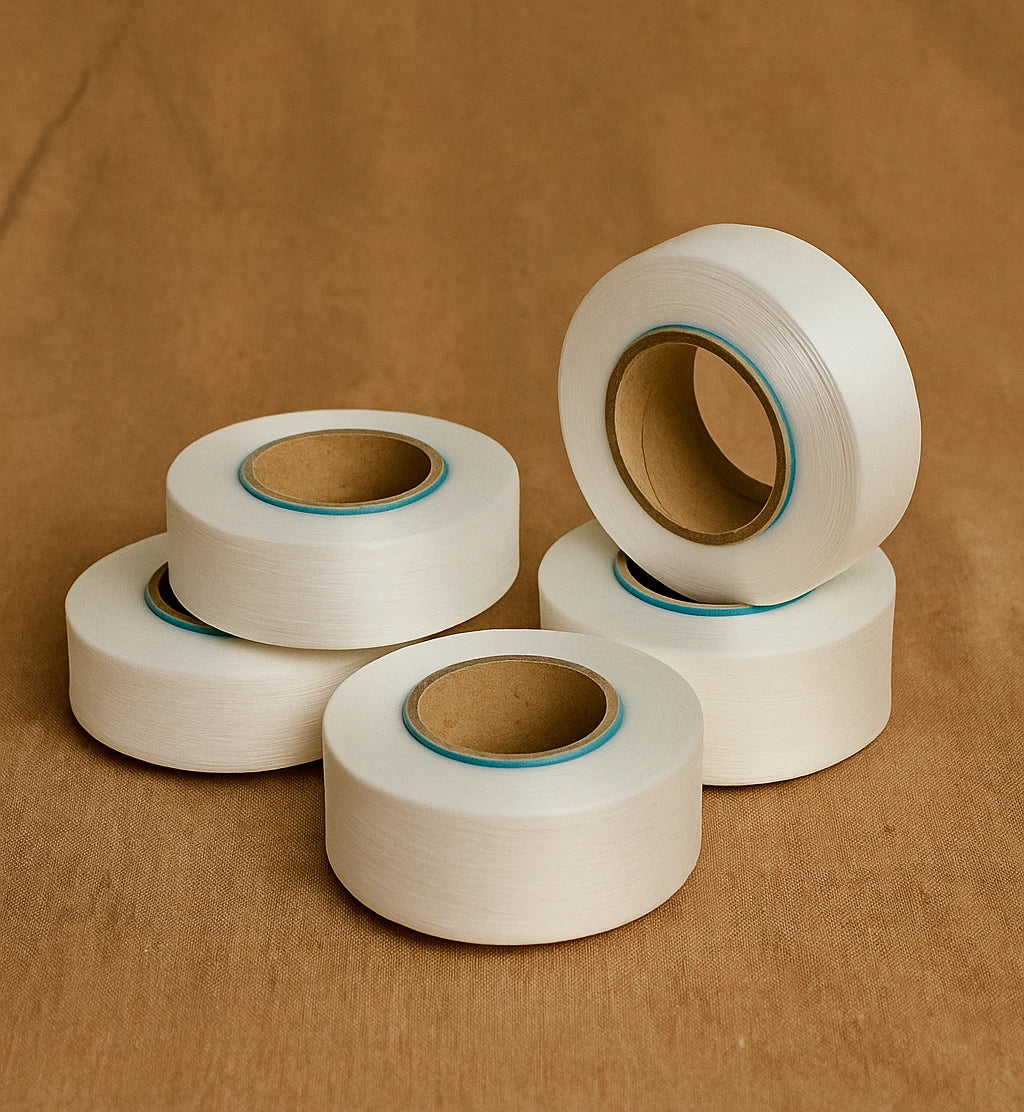




Learn more about our seams
-
Seam Threads - Aneflex™ ECO100
We use A&E Aneflex™ ECO100 to stitch our undie seams together at the waistband and leg openings. It's a non-Toxic and PFA-free .
Beyond being non-toxic and PFAS-free, Aneflex™ ECO100 is a thread made from 100% recycled polymers. It carries the Global Recycled Standard (GRS) certification, which verifies the recycled content and responsible production of the thread. GRS certification ensures not only traceability of recycled materials but also that no harmful chemicals are used in production and that the product meets strict social and environmental criteria.
-
OEKO-TEX® Standard 100 Class 1 Certification
A&E’s Aneflex™ ECO100 sewing thread is OEKO-TEX® Standard 100 certified at Product Class 1 (baby articles), which is the strictest level for textile safety. This certification means the thread has been tested for over 1,000 harmful substances and found to be harmless to human health.
The thread meets the rigorous limits for chemicals such as heavy metals, formaldehyde, and other toxins, far exceeding many international safety regulations. In short, the OEKO-TEX Standard 100 label guarantees the thread contains no dangerous residual chemicals, making it safe for sensitive skin.
-
Evolving to natural threads
We chose this thread after thorough testing proved it the most reliable for stretch and intimate wear. While cotton thread may seem like a natural choice, it lacks the strength and flexibility needed for underwear. It can snap, wear down, and cause friction, especially in snug fits. Since our garments are made without elastic waistbands, the thread plays a role in maintaining shape and comfort. We're actively exploring high-performing, natural alternatives as the industry evolves and remain committed to going fully all-natural.
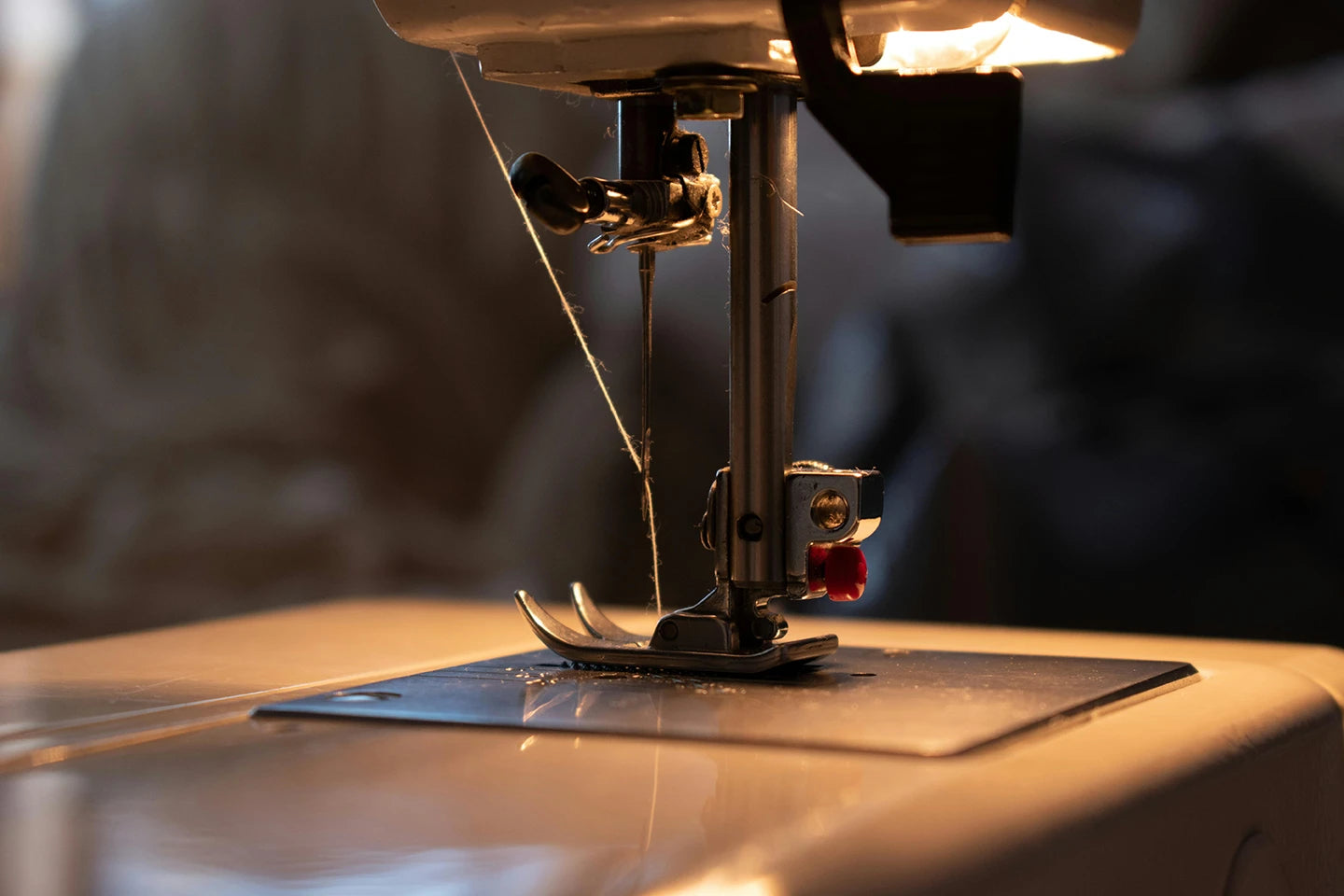


We hope this gives you a deeper understanding of what we create, so you can feel truly connected when you wear Kiseau Undies.
- Choosing a selection results in a full page refresh.
- Opens in a new window.

